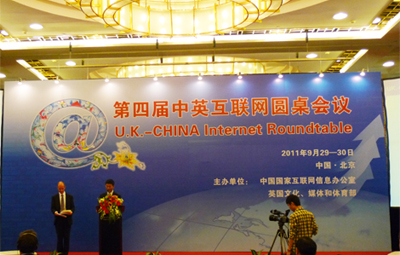Experts warn of growing US trade protectionism
Updated: 2011-10-05 07:59
By Tan Yingzi, Zhang Yuwei and Li Xiang (China Daily)
|
|||||||||
Analysts say vote may trigger a more fractious commercial relationship
WASHINGTON/BEIJING - The US Senate's vote on a bill to punish China for keeping the value of its currency low is a sign of rising trade protectionism, said analysts.
And they warned that, if ratified, the bill has the potential to trigger a trade war between the two countries and hamper the fragile global economic recovery.
In a 79-19 vote on Monday evening, the US Senate agreed on a bill that would require the US Treasury Department to determine if China is manipulating its currency and, if that is believed to be the case, then order the Commerce Department to levy taxes on some Chinese goods.
"The bill is a sign of rising trade protectionism," said Ding Zhijie, a professor of finance at Beijing's University of International Business and Economics, noting that a move of this nature may spark trade disputes between China and the US, which would have a negative impact on the global economy.
On Tuesday, the People's Bank of China released a statement in which the central bank said it "deeply regrets" the vote and cautioned that it will not help resolve domestic issues in the US - such as the trade deficit, the low level of savings and high unemployment - but could potentially affect the economy and market confidence.
"The passage of the bill may seriously affect China's currency reforms, potentially leading to a trade war between the two sides," the Chinese central bank said in its statement.
Such a move "seriously violates World Trade Organization rules and obstructs Sino-US trade ties", according to a statement from a Foreign Ministry spokesman, Ma Zhaoxu.
China has urged senators to "rationally understand Sino-US trade cooperation, which is mutually beneficial in nature, and to stop pressuring China through domestic law-making", he said.
The bill "will further escalate the exchange rate issue by adopting protectionist measures on the pretext of a 'currency imbalance'," he said.
Some US politicians have violated internationally accepted regulations by allowing a debate that seeks to impose duties on Chinese imports, said Shen Danyang, a spokesman for the Ministry of Commerce, on Tuesday.
Shen said the yuan exchange rate is not to blame for the trade imbalance between China and the US. He added that it is unfair to use a controversial bill on China's alleged "currency manipulation" to resolve US internal contradictions.
Hua Min, the director of Fudan University's Institute of World Economy, said that China should ignore the US pressure to revalue its currency. "What China should care about is how to reduce the accumulation of its massive foreign-exchange reserves," he said.
The Currency Exchange Rate Oversight Act, as the bill is called, would have to be passed by the Republican-controlled House of Representatives and then be signed by President Barack Obama in order to become law.
The latest argument by some US lawmakers is that the current level of the yuan is resulting in job losses in the US. However, that claim was rejected by Shaun Rein, the author of a forthcoming book The End of Cheap China, who said it is based on one of the "worst economic policies of the last 50 years".
He said the bill will not help to create more jobs in the US.
"What it will do is cause more inflation for America because manufacturers will have to raise prices, or it will create more jobs in Vietnam and other lower-cost producing countries. Manufacturers are not going to move back to the US. Instead, they will find even cheaper places for production," he said.
A number of economic experts said they are concerned about the influence of the legislation, which might lead to a currency war and could sink the global economy.
Derek Scissors, an economist from the Heritage Foundation, a Washington-based think tank, said Congress is playing with China and is not addressing the serious issues in the economic relationship between China and the US, such as regulatory government subsidies to State-owned enterprises.
"China's currency policy doesn't cost American jobs," he said. "Critics calling for a 20 or 30 percent revaluation might want to note that there has been a 25 percent revaluation since 2005, and American unemployment has soared," he said.
This bill, in common with previous tariffs, is probably a reaction to Democratic Senators appealing to the protectionist sentiments of their union and manufacturing base, said Ade Onitolo, director of Political Risk Forecasting at the London-based specialist forecaster, Exclusive Analysis.
Duncan Freeman, a senior researcher at the Brussels Institute of Contemporary China Studies, said that given the very bad economic situation in the US and the approaching election season, it is not surprising that congress is seeking action on the yuan. Ultimately the decision on whether new measures are passed will depend on the domestic political calculations of members of Congress, and possibly on President Barack Obama, if he is faced with a bill he has to sign or veto. In the past, the administration has sought to avoid sanctions on this issue, but in an election year, the political calculation may be different, said Freeman.
Imposing sanctions on China for undervaluing its currency may cause damage to the US economy that would outweigh any benefits that would accrue from a reduction in trade imbalances, he said.
Fu Jing in Brussels contributed to this story.
China Daily
(China Daily 10/05/2011 page1)










